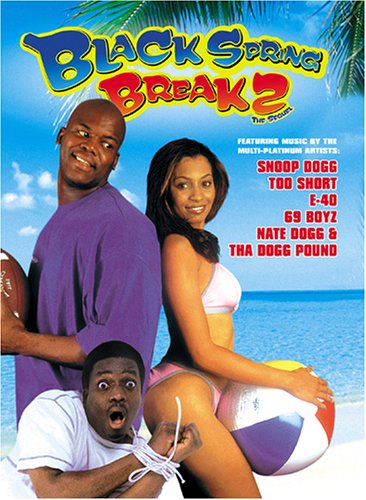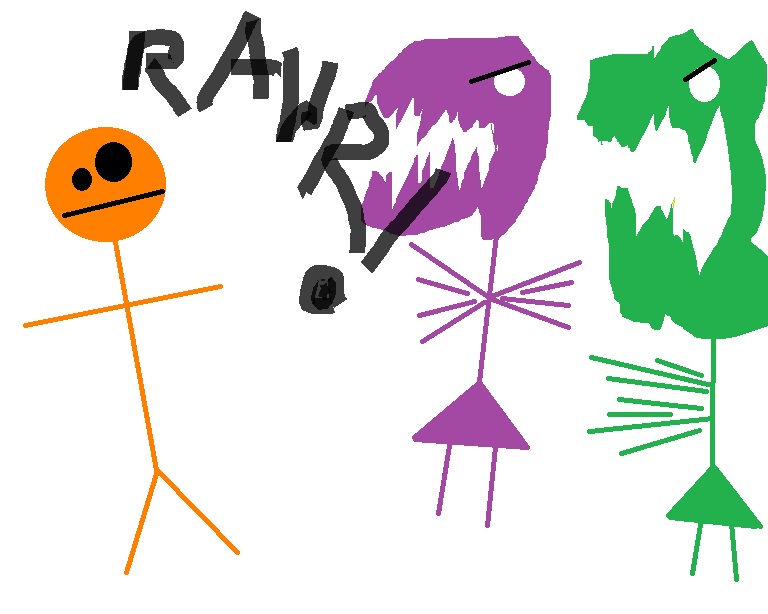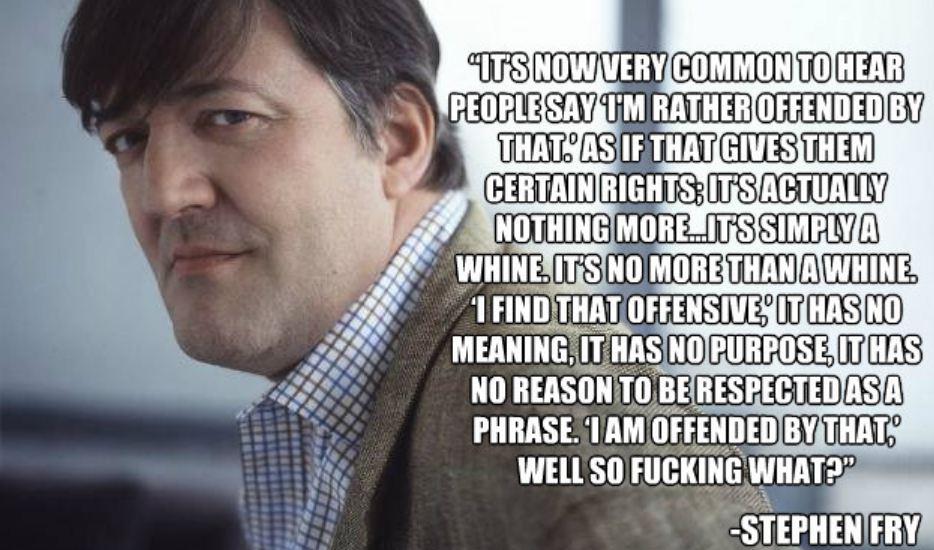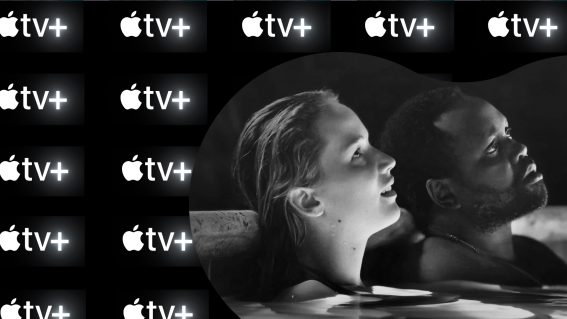The Nature of Being Offended

Disclaimer: if you are easily offended by matters surrounding “offence,” we advise you refrain from reading this post about offensiveness.
Back in my Glenfield college days, I had a couple of girl mates who I’d regularly visit for a good round of talkative bullshitting. During one off-topic subject, I said on a whim “I’m pretty sure she’s his girlfriend.” The two girls starred at me with slight disdain. The tension ramped up exceedingly.
With my flawless teenage-level social skills, I replied with “Gwha–” before being cut off with “You said HIS girlfriend.”
I tried to rebuttal “But I–“
“He doesn’t possess her, Liam. She’s her own woman,”
“That’s not what I meant,”
“Are you chauvinistic?”
“No no no, honest,”
“I think you better leave.”
So I left before they accused me of further chauvanisation. Only later did I realise what chauvinistic meant, and that “chauvanisation” wasn’t actually a word.

- An accurate recreation.
Questions grew from the pubescent fungus pot of my mind. What happened exactly? Why did they cast me out? What did I do wrong? Of course, I was 15 and a dumbass at the time, so I hadn’t a clue.
Turns out, what I did wrong was this: nothing. Not a damn thing.
My two friends took offence at what I said because of how they chose to interpret it. They felt strongly about female independence so, despite what I said being taken out of context OR that it was common vernacular OR that it was regularly exchangeable between both sexes (i.e. “he’s her boyfriend”), they took offense to my statement of a male possessing a female.
(Useless women, I ain’t no chauvinist.)
Whether it’s a common turn-of-phrase or a legitimate expression of opinion, judging whether someone is justified being offended over something someone said can be a tricky matter to discuss.
Movies fare no differently. Someone might be offended by the content of The Hangover Part 2. Meanwhile, the rows above laugh hysterically when Zach Galifianakis does something inappropriate with a monkey.
So what does it even mean to be offended by a movie? Let’s first warm ourselves up to the idea with this clip of a man storming out of a Sundance screening of Lucky McKee’s The Woman.
Fake or not, it demonstrates the passion someone can feel when they’ve simply had enough. But what is it exactly that provokes such a reaction?
In some form, it’s when a film tries to entertain its audience by bluntly exploiting an issue that one takes seriously. Cultural stereotyping is a salient example.

- Yes. This is actually a thing.
Then there are films that ball-punch a fickle minority. Anonymous offended a number of literary enthusiasts for even suggesting the possibility that Shakespeare could’ve been a fraud. If you found a quill-wielding theatre nut who took the brilliant playwright’s legacy way too seriously, they’d probably seek out to burn every reel of the film.
However, if you’re like me, you haven’t got a single shit to give about historical accuracy. Spin us your timely tale of total bollocks. If you choose to mince Hitler’s face with a flood of bullets, you have my blessing.
Then you’ve got flat-out misinterpretation. A group who feel passionately about a real problem can be guilty of impulsively latching onto a film in order to make their issues known (Wall-E). Most of the time, however, it works against them.
But when a film starts messing with social taboos, it risks getting its junk stuck in the titanium fly of public ridicule. Any straightforward association with “torture/rape” and “entertainment” will almost always see some sort of noticeable backlash, which brings me to…
Personally, I was offended by the first Human Centipede. Not for its content mind you, but for being boring as shit (shit which I can still taste in my mouth, along with the stitches). Most took offense to the unusual (yet admittedly creative) display of fictional dehumanisation, all in the name of seat-squirming amusement.
To be fair, the film worked with a respectable amount of minimalism, never showing a great amount of gore or any “up close and personal” details.
The same can’t be said for the sequel, for it actively searched the top ten things moral humans don’t want to see done to innocent people and proudly demonstrates them with a puffed-out chest, as if to say “Yeah, we went there.” Just where exactly is “there?” Well, I don’t want Flicks to be screened as NSFW, so I’m not gonna describe the scenes in this post (I’ll link you to wiki). The film is close to being globally banned.
People call for this banning because not only do they find it offensive, they cannot see how the average moral member of their community wouldn’t find it offensive. In the case of The Human Centipede 2, you can see the plausibility of thinking “how would any regular kiwi get any enjoyment out of this?”
But then, there’s the niche market of movie nuts who seek out these films solely because they’re offensive. And there is some entertainment value (for some) in witnessing just how far a film will go to piss you off or get you spewing in disgust.
Does this particular audience have no limit to their tolerance?
And who are we to deny them their film-going experience simply because everyone else finds it offensive?
Then again, it’s not enough to say “If at least one person wants to see the film, it shouldn’t be banned.” When a country allows or disallows a film to be screened, it gives the rest of the world an impression on that country. Depending on which values the leaders want to stable on their society, the material will either be deemed either acceptable or too offensive. You can easily compare offensive films and a sensitive society with sex education and overbearing Christian high schools.
Being a film site, I’m catering to the movie side of offensive material, but the issue’s pretty much the same in videogames and music.
It’s all a balancing act, one whose moral stability is itself a matter of opinion (I’m not even gonna bother going through the lengthy discussion of age restrictions).
I like to think I’m fair about someone’s rights to express their concerns about a film’s content as long as their complaints are made with reason and without unnecessary malice. We have every the right to be offended, and with the right inductive argument, proper action may be taken. That’s not always going to be the case, for you may be in the minority of those offended or you may have gaping holes in your reasoning for being offended.
Hell, I’m sure I’ve pissed some people off already with this post. That’s fine, I’m more flawed than talkback radio. The last thing we want to do is blatantly offend people (though I will do it if everything else in my life fails). But as fair as I’d like to think I am, sometimes I do feel more like Stephen Fry…

- I may have to edit this out later.














